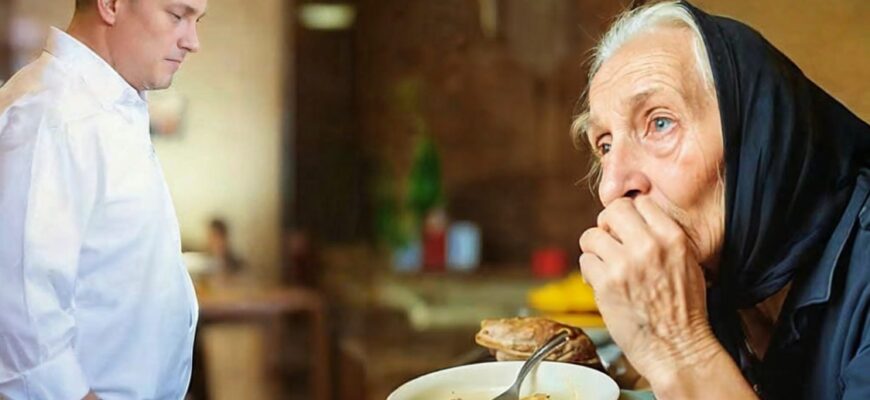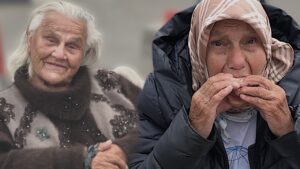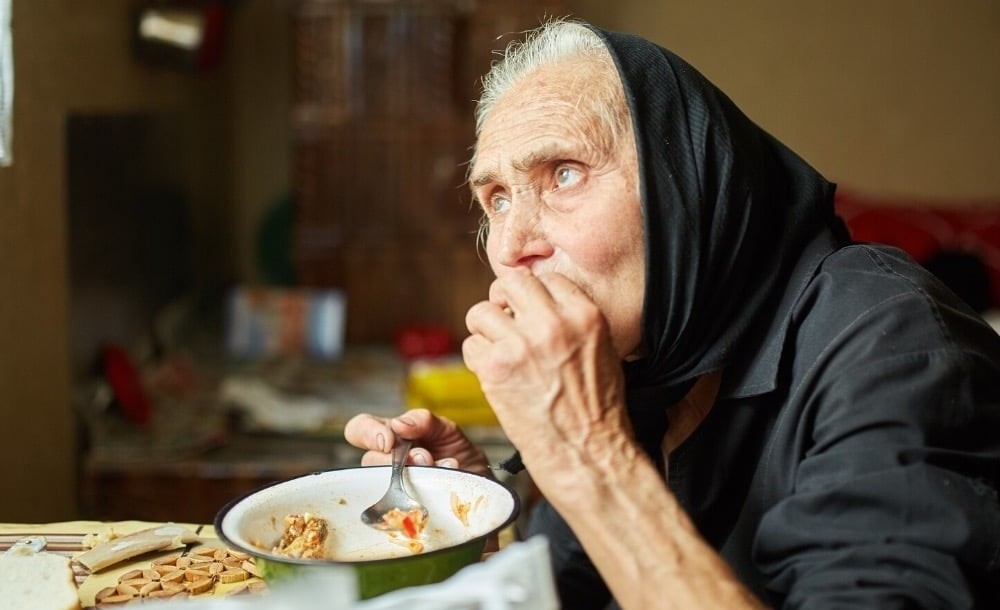
Vyacheslav leaned back in his office chair, reveling in the success of his restaurant, the crown jewel of the city’s dining scene. Yet, the polished veneer of his achievements hid scars from a turbulent past. It was a story of ambition, sacrifice, and loss—one that had shaped the man he had become.
The restaurant, with its glowing reviews and high-profile clientele, owed its existence to a seed of kindness planted by his late grandfather, Leonid. Selling the family’s beloved dacha to fund Vyacheslav’s first business venture, Leonid had believed in his grandson’s dream. That leap of faith paved the way for Vyacheslav’s journey from running a modest snack bar to owning the city’s most prestigious dining establishment.

But on this day, as Vyacheslav basked in his accomplishments, an interruption shattered his tranquility.The Woman Outside the Window
Two waitresses stood outside his office, whispering about “the old woman.” Curious and irritated, Vyacheslav stepped to the window. There she was: frail, disheveled, with tangled gray hair and a worn coat. She peered through the glass, her eyes fixed longingly on the plates of food inside.
Her presence, though harmless, was unsettling to the staff and diners alike. Vyacheslav ordered her removal, prioritizing his restaurant’s image over her plight. Security and even the police had escorted her away, but she returned, an unwelcome reminder of the struggles he had long left behind.
Later, he discovered one of his employees, Anya, secretly feeding the woman. Furious, Vyacheslav confronted her, chastising her for risking the restaurant’s reputation. As he berated her, the old woman spoke softly: “Don’t blame the girl. She was just being kind.”
Her voice was steady but filled with pain. And then she said the words that struck Vyacheslav to his core:
“Any trouble can be survived with bread.”
A Forgotten Past Resurfaces
The phrase was a key to a locked chamber in his memory. It echoed from his childhood, when his mother had soothed him after falls with the same words, offering bread and comfort. His chest tightened as he demanded to know who she was.
The woman introduced herself as Lyubov Vasilyevna.
Her name sent a jolt through him. Piece by piece, her story of loss, separation, and relentless searching unraveled. She spoke of a son, Slavochka, taken from her decades ago during a dark chapter of her life.
Tears filled Vyacheslav’s eyes. “I’m Slavochka,” he whispered, his voice trembling.
Lyubov’s breath caught, and she reached for him with shaking hands. “My Slavochka?”
Their embrace was a cascade of tears and years of longing. For both, the reunion was a miracle—a bridge spanning decades of sorrow.

Vyacheslav brought his mother into his life with open arms. She received medical care, a warm home, and, most importantly, the love of a family that had unknowingly waited for her. His wife and children welcomed her, their lives enriched by her presence.
For Vyacheslav, the reunion was a revelation. His relentless pursuit of success had been driven by a need to prove himself, to fill a void left by loss. But it was his mother’s return that showed him what truly mattered.
The restaurant continued to flourish, but its owner was now a changed man. No longer defined solely by his accomplishments, Vyacheslav found joy in family meals shared with his mother, her laughter filling a once-empty space in his heart.
Lyubov Vasilyevna’s presence became a cherished part of their story, a living testament to the resilience of love and the enduring hope of reunion.
And so, Vyacheslav’s legacy was no longer just about a restaurant—it was about family, redemption, and the profound truth that some treasures can only be found when you open your heart.





